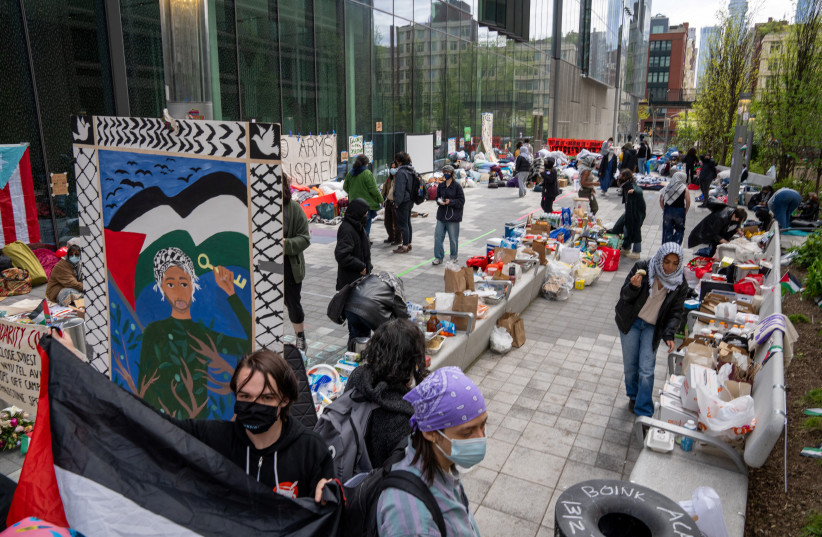In current debates, a troubling notion has surfaced - suggesting that protests at Ivy League Universities cannot be antisemitic because some Jews are involved in the cause. This argument mirrors historical examples of tokenism, where minority participation is exploited to downplay systemic discrimination.
During the era of African slavery in the United States, slave masters elevated certain slaves to control their peers, yet this did not mitigate the racism of the slave owners. Similarly, during the Holocaust, certain Jews were coerced into positions like the Judenrat, managing populations destined for hard labor and death. Their involvement did not diminish the antisemitism of the perpetrators.
Recent events provide subtle but compelling evidence of similar behavior. Specific requests for articles from Jewish alumni of Columbia University against Israel reflect a tokenization tactic within the SJP/WOL/Pro-Palestinian camp. In addition, a handful of Jewish students are brought into protests and camps to convince others that the majority of Jewish students and Jewish Americans oppose Israel's legitimate defensive campaigns. Far-left Jewish individuals are often positioned as spokespersons, falsely implying widespread Jewish support for these endeavors.
Challenging pro-Palestinian tokenism

While seeking support for their cause is understandable, it's essential to acknowledge the underlying bias. The pro-Palestinian crowd, while advocating for Palestinian causes and utilizing Jewish students as figureheads, often rejects assertions from Arab, Muslim, and other ethnic groups challenging their narrative.
They dismiss evidence refuting claims of Israeli apartheid or genocide, revealing a selective approach to inclusion and representation.
Therefore, the use of tokenism is clear. The fact that a minority of Jewish individuals align with the pro-Palestinian movement does not erase the inherent racism and antisemitism that pervade through their rhetoric, chants, and actions. They use aggressive tactics to shut down discussions that bring clarity to the situation, aiming to create confusion and mobilize unwitting students seeking to make an impact.
Tokenism minimizes real issues while perpetuating harmful stereotypes. Genuine dialogue requires moving beyond tokenistic gestures to confront prejudice and discrimination head-on.
In conclusion, Tokenism is perilous. In current discourse, a minority of the Jewish population supporting certain causes is weaponized against the majority supporting Israel's right to defend itself. This exploitation of minority participation underscores the insidious nature of tokenization.
By unpacking the dangers of tokenism and historical parallels, we can foster a more inclusive discourse, acknowledging diverse perspectives while addressing bigotry and gaining clarity on complex subjects that require data-driven insights.
Daniel Bercovici, a Columbia University alum, is a passionate writer exploring societal issues through a critical lens. Committed to fostering genuine dialogue and challenging perspectives.
